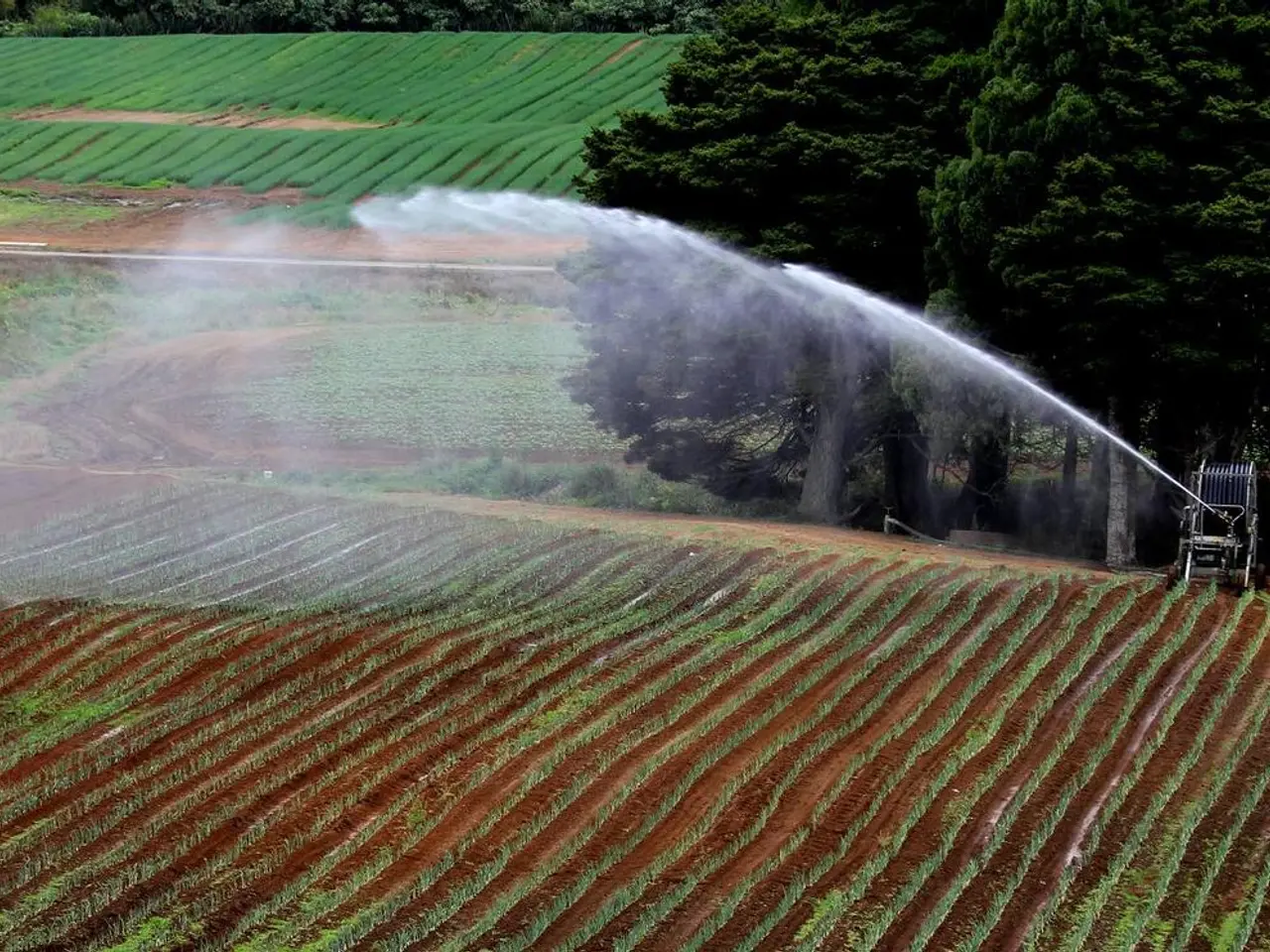Artificial Intelligence Revamps Conventional Sectors for Environmental Conservation
Artificial Intelligence (AI) is revolutionizing traditional industries like agriculture and manufacturing, bringing about increased efficiency, cost savings, and improved accuracy. This technological shift is particularly significant as it offers a pathway to a more sustainable and adaptable future.
Agriculture
In agriculture, AI is making a tangible impact through precision farming, autonomous machinery, and AI-driven harvesting robots. By analyzing data from sensors, satellites, and drones, AI can monitor soil health, crop conditions, and irrigation needs, enabling resource optimization and higher yields while minimizing waste and environmental impact.
AI-powered tractors and harvesters, using GPS and sensors, navigate and perform tasks autonomously, while AI-driven harvesting robots, equipped with image processing, identify and pick mature fruit accurately. This addresses labor shortages and boosts productivity, as seen in the John Deere's "See & Spray" system, which identifies weeds accurately and applies herbicides only where necessary, reducing chemical use and environmental impact. Advanced farms deploying AI fruit-picking robots have also increased harvesting efficiency and reduced production costs, mitigating the effects of an aging rural workforce.
Manufacturing
In manufacturing, AI is streamlining operations, from automating routine tasks to optimizing energy use. Predictive maintenance, generative design, and raw material price forecasting are key use cases. AI can forecast equipment failures before they occur, minimizing downtime and maintenance costs. Machine learning generates thousands of optimized design options based on specified parameters, accelerating innovation. AI can also predict volatile raw material prices, helping manufacturers adapt procurement strategies.
Companies like PepsiCo and Airbus are already reaping the benefits of AI. PepsiCo's Frito-Lay plants used AI-driven predictive maintenance to minimize unplanned downtime, increasing production capacity by 4,000 hours. Airbus reduced aircraft aerodynamic prediction times dramatically using AI, enabling faster design iterations and improved product innovation.
Benefits and Challenges
The benefits of AI in traditional industries are numerous. These include increased operational efficiency and productivity, cost savings through predictive maintenance and optimized resource use, reduction in waste and environmental impact, enhanced innovation speed through AI-powered design tools, and improved accuracy in tasks such as harvesting and inspection.
However, the adoption of AI also presents challenges. High initial investment and integration complexity, the need for skilled personnel and workforce retraining, resistance to change within traditional industry settings, data quality and security concerns are some of the hurdles that need to be addressed.
Future Prospects
The future of AI in traditional industries is promising. Wider adoption of AI-powered edge computing and robotics will enable real-time decision-making onsite, enhancing collaboration between AI and human workers, and expanding into smarter supply chain and logistics management. Continued advancements in AI models will lead to more autonomous and adaptive industrial systems.
As we navigate these complexities, it's crucial to maintain a balanced perspective, recognizing both the potential and challenges ahead. AI technologies, when applied responsibly and innovatively, can drive efficiency and foster sustainable growth across various sectors. It's an exciting time to be at the forefront of these developments, pushing for a future where technology and tradition converge to create a more sustainable world.
In the agricultural sector of emerging economies, AI-powered drones and sensors collect and analyze data on crop health, soil conditions, and weather patterns, enabling precision farming practices that conserve resources and increase yields. Ongoing advancements in AI, including improved algorithms and more accessible computing resources, are lowering the barriers to adoption.
The role of AI in transforming traditional industries is optimistic, with a thoughtful, evidence-based approach. Recent discussions on platforms like "our website" emphasize the challenges and opportunities of embracing AI in traditional industries. The work at DBGM Consulting, Inc., and the academic pursuits at Harvard University, serve as examples of advocacy for the responsible and innovative application of AI.
AI technologies, when applied responsibly and innovatively, can drive efficiency and foster sustainable growth across various sectors. It's an exciting time to be at the forefront of these developments, pushing for a future where technology and tradition converge to create a more sustainable world.
- In the environmental science field, AI can be utilized to comprehensively monitor and analyze climate-change data, predicting patterns and trends that aid in formulating efficient mitigation strategies, thus promoting a more sustainable future.
- Integrating AI with the realm of arts, particularly in the realm of artificial intelligence-generated art, can lead to innovative exploration of themes related to climate-change and the environment, sparking public engagement and heightening awareness about these pressing issues.
- Environmental-science students can leverage AI tools in their research, enabling them to process and interpret vast amounts of data about climate change and its impacts, fostering the development of data-driven solutions for a more sustainable planet.




